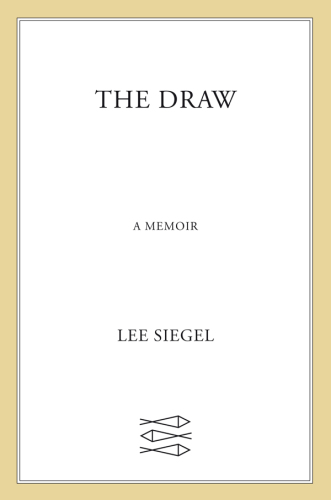
The Draw
A Memoir
کتاب های مرتبط
- اطلاعات
- نقد و بررسی
- دیدگاه کاربران
نقد و بررسی

Starred review from December 19, 2016
In this powerful, jarring memoir, author and critic Siegel (Against the Machine) painstakingly maps the bitter familial legacies that shaped him. Suspended between parents with artistic aspirations—an ineffectual, self-effacing jazz pianist father and a histrionic, failed actress mother—Siegel bombed as a student and low-wage worker, even as his immersion in literature convinced him that he was destined for greatness. His attempts to escape the vortex around his childhood home propelled him to college in the Midwest and later to Norway, where he finally began to create a viable self. Eschewing the standard minimalism of the literary memoir, Siegel explores the psychological complexity of his family romance in layered prose, in particular the impossible demands of a mother who shrieks across the pages like a monstrous suburban hybrid of Joan Crawford and Blanche Dubois. Siegel’s vivid portrayal of this turbulent woman is so intense that the narrative can falter when she’s offstage, with friends, lovers and even his father fading in her absence. Siegel’s strong focus on psychological depth rather than the visible remakes his familiar journey from American boy to man into something strange, disturbing, and wonderful.

February 15, 2017
A frank memoir of money and the man.Culture critic Siegel (Groucho Marx: The Comedy of Existence, 2015, etc.) incisively explores his modest New Jersey upbringing, exposing more deeply the personal history he shared in a June 2015 New York Times op-ed piece, in which he confessed to defaulting on his student loans. Reaching back to his pre-college struggles, the author recounts the bleak tale of his youth, growing up a budding intellectual drawn to writing amid a dysfunctional domestic scene. Siegel's graceful opening description of the full moon shining like an "incandescent coin" subtly introduces the central role money played in the cataclysmic decline of the relationship between his failed jazz pianist father and unstable, "aspiring actress" mother, whom the author sees as driven together and, finally, apart by their "mutual vulnerability." The title refers to the arrangement his father made with the real estate firm who employed him as an agent, whereby he was advanced a weekly salary against future commissions with the understanding it would be paid back. However, the more he "depended on the Draw to live, the more it shrank his life"--to the point that, when sales didn't materialize, he eventually amassed a huge debt, which led to his firing, divorce, and having to declare bankruptcy while Siegel was in college. Thrust into ever more dire financial circumstances by his father and psychologically tortured by his mother, who "seemed to live for bitter emotional combat with everyone around her," the author repeatedly endured humiliation in an attempt to support himself and get an education. Beautifully portraying his resulting masochistic "dedication to suffering" as akin to a "Buddhist monk on fire," Siegel doesn't hold back in baring his emotional scars. Though filled with moving introspection and insight, especially into the intangible ravages of poverty, the book may leave some readers wanting: if not for forgiveness or acceptance of the parental inadequacies he admirably bested, then at least the balm of forgetting. An unsparing, intimate reflection on the many ways money--or the lack thereof--can tear a family apart.
COPYRIGHT(2017) Kirkus Reviews, ALL RIGHTS RESERVED.

March 15, 2017
Siegel's (Against the Machine, 2008) memoir is an introspective, honest look at his boyhood, with a failure of a father and a mentally ill mother, and its lasting consequences. (The title refers to the salary Siegel's Realtor father, Monroe, received against his unearned commissions.) When the 1970s recession hits, Monroe owes thousands, and things quickly spiral downward. Monroe and Siegel's mother, Lola, divorce; Lola has a mental breakdown; and money for Siegel's college tuition runs out. Siegel wanders from one menial job to the next, retreating into books and still believing he's destined for great things, even as his lack of confidence betrays him repeatedly. Although Siegel is embarrassed by his father, it's his mother and her emotional combat that overshadow everything; when she is present in the narrative, Siegel's writing is its most effective and visceral. Anachronistic scenes, in an otherwise chronological telling of the author's teens and twenties, combined with laid-bare writing, although jarring, have the effect of mimicking memory. A penetrating, if narrow, look at the psychological effects of family and affluence.(Reprinted with permission of Booklist, copyright 2017, American Library Association.)

























دیدگاه کاربران